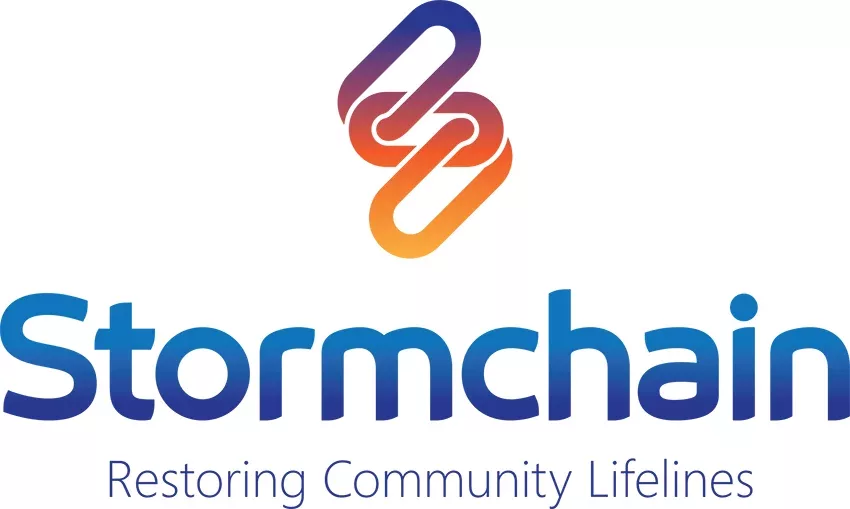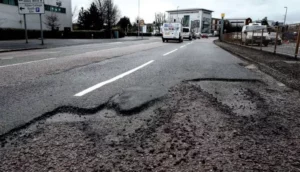Stormchain, the world’s first integrated emergency management tool, developed in response to the highly respected Department of Transport Resilience Review, has become one of the recipients of this year’s Transport-Technology Research and Innovation Grants Programme (TRIG).
The new highway Rapid Impact Assessment system supports local authorities during any extreme weather, threat or hazard event. Funding will accelerate the final development phase.
This comes as the UK witnesses more extreme weather, with summer flooding in London causing major disruption, and more recently, storms Arwen, Dudley, Eunice and Franklin occurring in what was otherwise, a ‘mild’ winter,
Why is Stormchain important?
Stormchain is a direct response to the UK Department for Transport‘s recent lessons learned publication. Here, the Department for Transport DfT undertook a detailed analysis of those councils hit by a significant series of floods and other emergencies (2015-2020). It was established that whilst councils responded well to previous sector-focused Resilience Reviews – mainly on snow, ice and gritting – there is a need for a transformational change in how the sector prepares, responds and recovers from such emergency events: including all forms of weather and major incidents, including deliberate attack.
The weather events in the last year, follow the Beast from the East snow event in 2018, and major flooding that affected large parts of the country between 2015 and 2020, as detailed in the Deeming report.
Stormchain will be essential to every highway operator and council who will need to communicate with front line teams, local councillors, blue light services and often No.10. Having clear, concise and standard reporting the system creates a transformational approach that will provide situational awareness where currently hard-pressed teams dealing with emergencies are limited by time and resources.
How does Stormchain work?
Stormchain has been designed and built to address this particular need and is a world first system. It is systematic and end to end – from field-based operatives to control room and back again providing near instant SitRep during fast evolving incidents.
Through detailed analysis and critical review globally, Stormchain creates a state-of-the-art approach to highway asset rapid impact assessment, where:
Impact = Asset damage x Consequences to the community
Engineers and Inspectors use the Stormchain App in fast evolving situations. This provides them with pre-set questions, easy drop-down answers and scope for free text and uploading photos. Once the Rapid Impact Assessment has been completed, Highway control room managers can review, analyse and act on upon the information, instantly as it is received.
John Lamb, was Calderdale’ Chief Officer leading the response to loss of essential bridges and other assets during the Storm Eva Boxing Day floods in 2015, with repairs and upgraded flood protection costing over £80million (his efforts captured in Hansard)*
He said “During major highway incidents there is no way to swiftly and consistently identify what is happening, either in terms of the damage to our roads and bridges, or the consequences of this damage for the communities we serve. It took over ten hours before a major incident was declared and proper assistance could eventually start to arrive. Just as the ambulance service operates on the golden hour principle to saves lives, the delays to understand where priority effort should be targeted on our highway network over the essential first hours and days is reducing the effectiveness of our response and recovery.
“Stormchain provides the world’s first systematic approach for assessing wide area impacts on our lifeline highway and aligned services infrastructure. With TRIG funding we can scale up and pilot live data capture and a new highways control environment that allows councils to analyse and react in ways that previously took weeks. We have seen, time and again, events such as the Hull floods of 2007 have mirrored the same delayed responses in 2015 (Storm Desmond) and in 2022 with Storms Dudley, Eunice and Franklin. The absence of a clear and systematic approach to impact assessment has also been recognised by global sector leaders who deal with hurricanes, earthquakes and other disasters.”
Stormchain has already been working with councils who have been worst hit and has proven the system.
“TRIG gives assurance and allows us to validate our work to date. Stormchain will provide the assurance our frontline teams need and managers will expect—standard and consistent information on live events, data exchange including photos, and an area-wide network understanding, as assets become impacted. Stormchain allows council staff and contractors to swiftly prioritise, using an impact-based approach, ensuring assets are stabilised, repaired and reopened in a way that provides greatest effect in reducing community consequences,” added Hugh Deeming.
Funded by the Department of Transport’s Office for Science and delivered by the Connected Places Catapult, the TRIG programme is now in its eighth year and since 2014 has provided over £6m of grants to support over 190 projects, from across the breadth of the transport technology spectrum.
Hugh Deeming’s full report, published by the Department for Transport, can be viewed here: https://www.gov.uk/government/publications/lessons-learned-from-extreme-weather-emergencies-on-uk-highways
*John Lamb’s work during the floods was detailed in Hansard here: https://hansard.parliament.uk/commons/2016-01-20/debates/16012030000005/StormEvaLocalAuthoritySupport





















